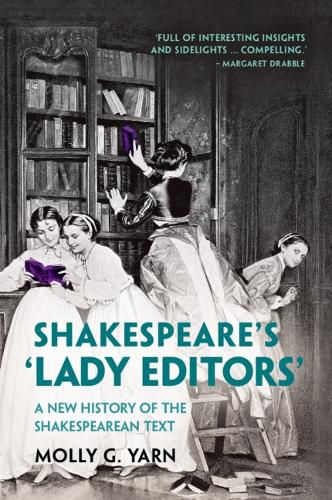Readings Newsletter
Become a Readings Member to make your shopping experience even easier.
Sign in or sign up for free!
You’re not far away from qualifying for FREE standard shipping within Australia
You’ve qualified for FREE standard shipping within Australia
The cart is loading…






The basic history of the Shakespearean editorial tradition is familiar and well-established. For nearly three centuries, men - most of them white and financially privileged - ensconced themselves in private and hard-to-access libraries, hammering out 'their' versions of Shakespeare's text. They produced enormous, learned tomes: monuments to their author's greatness and their own reputations. What if this is not the whole story? A bold, revisionist and alternative version of Shakespearean editorial history, this book recovers the lives and labours of almost seventy women editors. It challenges the received wisdom that, when it came to Shakespeare, the editorial profession was entirely male-dominated until the late twentieth century. In doing so, it demonstrates that taking these women's work seriously can transform our understanding of the history of editing, of the nature of editing as an enterprise, and of how we read Shakespeare in history.
$9.00 standard shipping within Australia
FREE standard shipping within Australia for orders over $100.00
Express & International shipping calculated at checkout
The basic history of the Shakespearean editorial tradition is familiar and well-established. For nearly three centuries, men - most of them white and financially privileged - ensconced themselves in private and hard-to-access libraries, hammering out 'their' versions of Shakespeare's text. They produced enormous, learned tomes: monuments to their author's greatness and their own reputations. What if this is not the whole story? A bold, revisionist and alternative version of Shakespearean editorial history, this book recovers the lives and labours of almost seventy women editors. It challenges the received wisdom that, when it came to Shakespeare, the editorial profession was entirely male-dominated until the late twentieth century. In doing so, it demonstrates that taking these women's work seriously can transform our understanding of the history of editing, of the nature of editing as an enterprise, and of how we read Shakespeare in history.